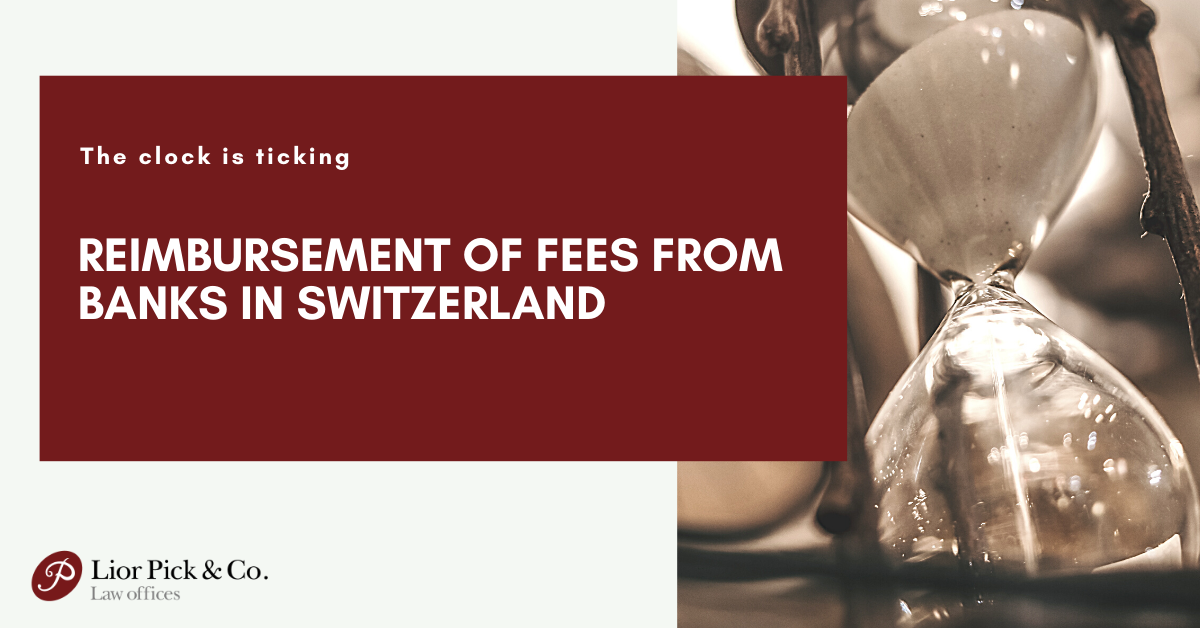Lior Pick, Attorney-at-Law, CPA, Shiri Weiss, Attorney-at-Law
The Family Affairs Court is competent to debate a person’s legacy in Israel, when the legator’s place of residence at the time of his demise was in Israel, or when the legator left assets in Israel (Section 136 of the Inheritance Law).
Thus, for example, the Family Affairs Court is competent to issue an inheritance order of a legator, whose place of residence, at the time of his demise, was in Israel, even if all his estate is outside of Israel and this applies to all the legator’s assets.
To the extent that the legator left assets in Israel, the Family Affairs Court shall be competent to issue an inheritance order only on those assets that the legator left in Israel.
Whenever a legator’s place of residence, at the time of his demise, was outside of Israel, his legacy will be debated according to his place of residence. In order to prove the foreign law, an opinion from an expert on the foreign law is essential. “Expert,” as aforementioned, is defined by the Supreme Court as follows – “While it is difficult to provide an exhaustive definition as to who is considered to be an expert at foreign law, it can be said that an attorney or jurist, who, whether practically, academically or in any other way is engaged in that legal system that has to be proven, has the qualities to serve as an expert witness, through whom the foreign law can be proven. (Civil Appeal 6796/97Berg Yaakov & Sons (Furniture) Ltd. vs.BERG EAST IMPORTS INC. Verdict 54 (1) 697, 707.
Regarding this matter see:
• High Court of Justice 171/68 Hanazalis vs. the Court of the Greek Orthodox Patriarchal Church, 23 (1), 260.
• Civil Appeal 598/85 Kahana vs. Kahana 43 (3), 473.
• In the matter of a choice of law, see Civil Appeal 376/68 Machlev vs Levy’s heirs, 22 (2), 606.
Determining at Person’s Place of Residence
Reference is to an entirely factual matter in which the court will be required to test “most of the inclinations” – For example, this test includes the division of time between Israel and the second country, whether reference is to Israeli or foreign citizenship, where the person works, the period of residence in Israel and overseas, where that person’s assets are located and whether he pays national insurance etc. id est, the place to which the legator had an unmistakable connection from a factual aspect.
Reference is to a real and practical test, which is examined over a prolonged period.
Regarding this matter it must be clarified that a legator, who resided in Israel at the time of his demise did not necessarily make Israel his place of residence and the facts must be examined as detailed above. Furthermore, regarding this matter, a legator, who is not an Israeli citizen, can, pursuant to the “most of the inclinations test,” be deemed to have a place of residence in Israel.
Regarding this matter see:
• Civil Appeal 587/85 Stark vs. Birenberg 41 (3), 227.
• Civil Appeal 260/89 Levy vs. Hefner 45 (4), 391.
In Conclusion
• A court in Israel is competent to debate the legacy of a person, whose place of residence, at the time of his demise, was in Israel, or who left assets in Israel.
• A court in Israel is competent to debate the legacy of a person, whose essence of life was in Israel, even if the assets that he left are located outside of Israel.
• A court in Israel is competent to debate the legacy of a person, who owns assets in Israel, even if the essence of his life is not in Israel.
• When a legator leaves assets in and outside of Israel, a court in Israel is competent to debate his legacy, regarding the assets that he left in Israel.
Our offices specialize in legal consultation and accompaniment and company and individual taxation in the high-tech and investment fields in Israel and overseas.
The contents of this circular may not be transferred and/or distributed to any entity whatsoever, apart from that to which the circular is addressed. This circular may not be copied and/or photographed and/or used without the undersigned’s advance written permission.
This circular is intended solely for general purposes. The contents of this circular may not be used without receiving professional individual legal opinion and/or advice pursuant to the specific circumstances.

In 2012, the Federal Supreme Court of Switzerland ruled that banks must reimburse their clients – among them many Israelis – who were billed […]


Force Majeure is a common clause in a contract. Many agreements include a Force Majeure clause which can, in some specific cases, cancel or […]

Virtual Currency Exchanges allows the trading and exchange of cryptocurrency (virtual currencies or utility tokens) for other cryptocurrencies or for fiat currency. Nevertheless, this […]

It is common knowledge that, as a part of the division of land estates, there are opportunities to plan taxation correctly. This is sometimes […]

“Even clients of the Swiss bank Credit Suisse received a preferred list of lawyers and accountants to perform ” voluntary disclosure ” procedures – […]

Facebook Twitter

On September the 7th, 2014, the Israeli Tax Authorities published a new Temporary Order for Voluntary Disclosure Requests authorized by the new Voluntary Disclosure […]

A. GENERAL The Tax Authorities are interested in encouraging tax-payers, dealers, individuals and functionaries in enterprises of whom violated the tax laws, to correct […]

As you know, after introducing of amendment #168 of 01.01.2007 into Israeli law on income taxation, the new immigrants and citizens who have returned […]